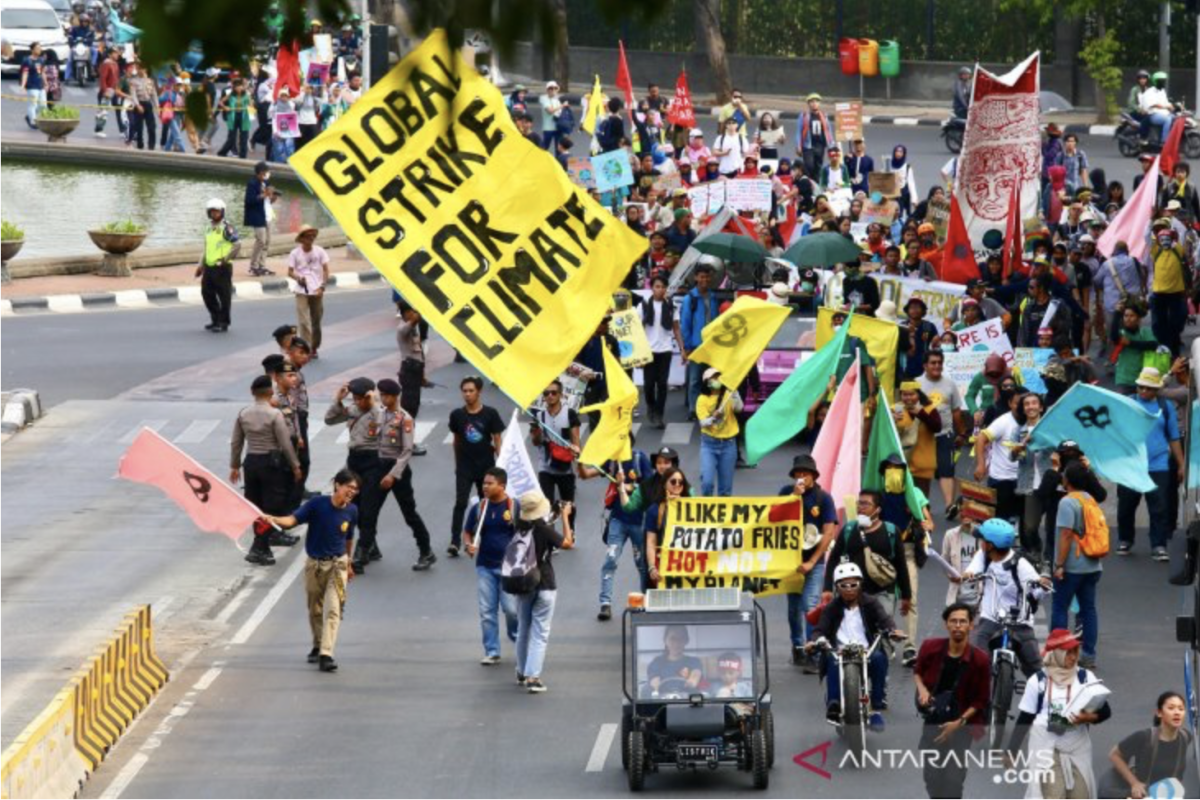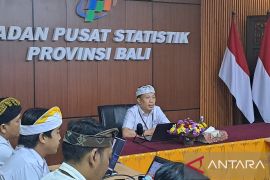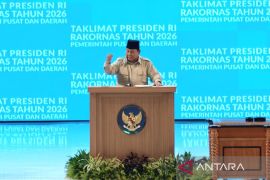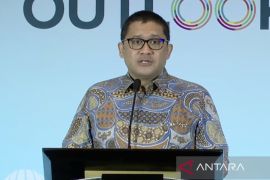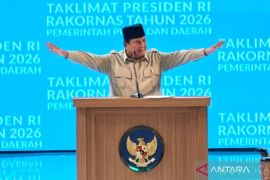“You are failing us, but the young people are now starting to understand your betrayal. The eyes of all future generations are upon you, and if you choose to fail us, I say: We will never forgive you,” Greta Thunberg, 16-year-old Swedish environmental activist on climate change, remarked as she addressed world leaders in her infamous, emotional speech at the United Nations Climate Summit in New York.
Just days prior to Thunberg’s speech that held the generation before hers accountable for safeguarding the grounds her generation would continue to live in, youngsters worldwide were rallying on the streets to echo their concerns over global climate threats in their own countries.
The youth underscored the criticality for their government to act promptly to fight climate change. In countries, such as Australia, New Zealand, the Philippines, Indonesia, Ghana, Samoa, and South Korea, the youth are treading the path paved by Thunberg and spearheading the fight against global warming.
“Change is coming, whether you like it or not,” Thunberg cautioned at the end of her UN Climate Summit speech.
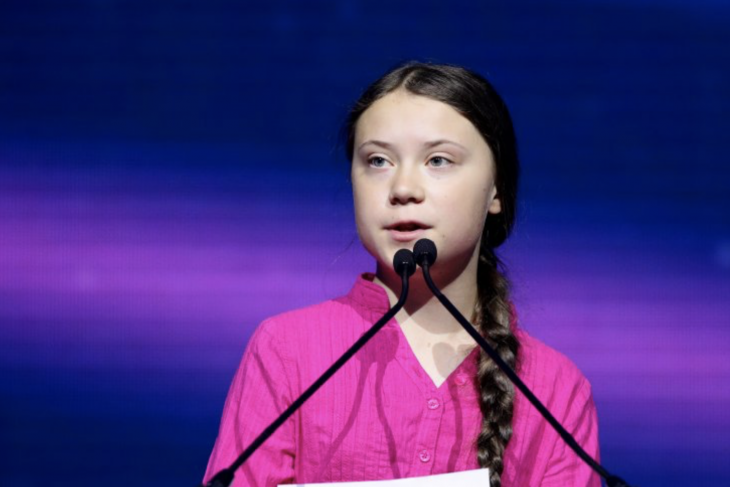
Awakening
In August this year, the Intergovernmental Panel on Climate Change (IPCC) released a report that comprised chapters on food waste that still falls between 25-30 percent, expansion of deserts, land degradation, and the challenge of ensuring food security.
It then made public another report in September on oceanic concerns that drew attention to the accelerating rise in sea levels and sea temperatures, drop in ocean oxygen levels, and coral reef damage due to increasing ocean acidification.
As the youth comes to the realization of climate change, the lack of discussion among the people, in spite of clear science being laid out, seem to enflame them, as they perceive the risk to their future and their lives hanging in a fragile balance.
While Thunberg’s campaigns have impelled global movements navigated by the youth today, the pressing need to fight climate change and make serious, concerted, and combined efforts against it have been addressed by several generations before.
Long-standing organizations -- Greenpeace, the World Wide Fund for Nature, and The Nature Conservancy -- for instance, have been echoing the silent distress that the environment had endured for decades. They are currently passing the baton to the younger generations to further their cause.
Younger movements have also emerged to back their predecessors through their own measures, one of them being the year-old Extinction Rebellion. Though not initially founded by youth groups, the socio-political climate movement had become a magnet for young climate activists, with their civil disobedience and non-violent resistance tactics to coerce the government into taking action on climate breakdown.
The UK-based movement quickly spread across countries, including Indonesia, drawing youngsters keen on strengthening the force to save the earth from collapsing and humankind from going extinct.
Indonesian Youth
Extinction Rebellion Indonesia Coordinator, Defrio Nandi, echoed his concerns to fight for the cause by inviting his fellow millennials to find their sense of real activism instead of a digital one.
“A lot of young people are caught up with their digital world and have somehow lost touch with that sense of activism, and I want to urge them to bring back that solidarity instead of marching on social media,” he stated.
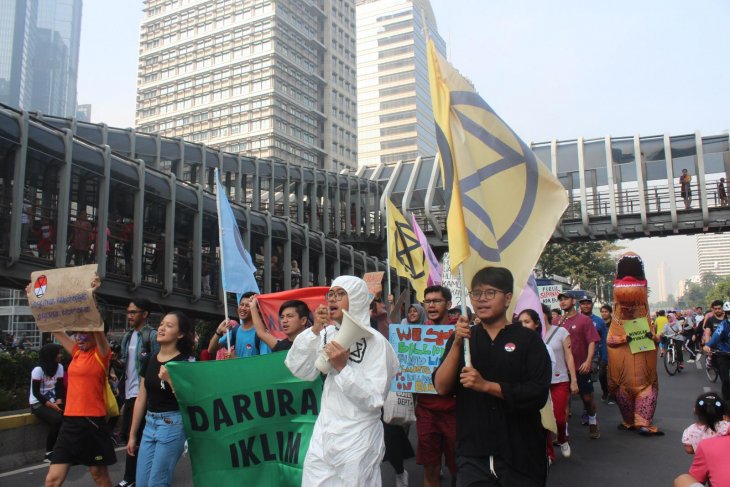
Nandi, who became a university graduate in 2017, highlighted the current pressing need to get as many people as possible down to the streets and urge those in power to address the climate crisis.
He also strives to get the conversation rolling, particularly among youngsters, taking into account the fact that environmental issues are oftentimes perceived as peripheral.
“It is important for Indonesia to get the conversation going. This is not an issue for five or 10 years later. The impact (of climate change) can already be felt now. Forest fires that caused haze have become more difficult to be put out, thousands of hectares of agriculture experienced crop failure due to monsoon, and if we do not make serious efforts, it will only become worse,” he expounded.
Disparate from the movement carried out in the UK, which featured acts including gluing the activists’ hands to buildings and painting corporation buildings, that resulted in their arrest, Nandi believed there was no need for such acts in Indonesia.
He considered the difference between both nations, where he believed that environmental concerns were often echoed by the public in the UK but had failed to reap results.
“Hence, they needed to resort to measures that would prompt actions from the government. I think what we need in Indonesia is spreading the message across and ensuring that we educate the public on the importance of this,” he noted.
Hope
Greta Thunberg, in her UN Climate Summit speech, deplored world leaders for resting the hope of the future on young people.
However, European Union Ambassador to Indonesia, Vincent Piket, had earlier stated that the push from the young generation is what keeps the older generations on their toes, thereby keeping them alert and constantly seeking solutions.
By keeping the people in power on alert and pushing to fight climate change for the sake of their future, young people are playing their role in ensuring that such hope that was laid on them, does not go in vain.
EDITED BY INE
Editor: Suharto
Copyright © ANTARA 2019
